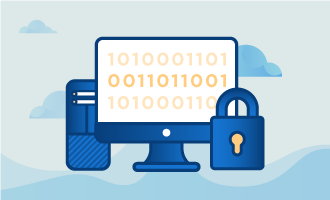Differences between self-managed and managed server
Server management is simply the functions and activities involved with keeping your servers up to date and secure from online threats that occur while maintaining your daily business operations. All servers need some level of management to ensure that they are running at optimum performance and are safe and secured. There are two choices for server management. One choice is to let your service provider manage the server for you, but not every hosting company provides that option. When server management is done by the server owner, it is referred to as ‘self-managed”. It is recommended to keep your server(s) always up to date since it can cause major issues down the road. Let’s investigate the possible pitfalls of a self-managed server.
When opting to self-manage a server, all updates and security patches are the responsibility of the user. Keeping a server up and running requires vigilance, patience and knowledge. It is not uncommon for servers to become outdated. Sometimes it can feel like a full time job to manage a dedicated server. Out-of-date operating systems are vulnerable to security breaches which can lead to hacked web-sites, loss of data, revenue and damage sometime irreparable, to your brand and image.
Hackers are on the lookout constantly for websites that aren’t using the latest patches, and whose CMS or webserver application has not been updated. They are capable of sending SPAM, Phishing and launching DDoS attack that will compromise not just your website, but others as well, potentially damaging your brand, online presence and ultimately your business.
By opting for professional server management these pitfalls can be avoided and maximum uptime can be achieved. Why worry about your server status when there are options available. Choosing a professional IT firm to manage your server and its resources can vastly improve the performance, security and reliability of your dedicated server and your online presence.

 Call us at 1-888-GTCOMM1
Call us at 1-888-GTCOMM1



